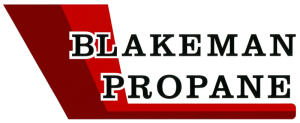The rise of gambling addiction support services
The Rise of Gambling Addiction Support Services
The Growing Awareness of Gambling Addiction
In recent years, there has been a significant increase in awareness regarding gambling addiction, a condition that affects millions of individuals worldwide. With the proliferation of online gambling platforms and the normalization of betting in popular culture, the conversation around gambling addiction has shifted from stigma to understanding and support. For those interested in learning more about gambling addiction, click here.
Understanding Gambling Addiction
Gambling addiction, also known as compulsive gambling or pathological gambling, is a behavioral addiction characterized by the uncontrollable urge to gamble despite the negative consequences. It can lead to financial ruin, strained relationships, and severe emotional distress.
Signs and Symptoms of Gambling Addiction
Recognizing the signs of gambling addiction is crucial for early intervention. Common symptoms include:
- Preoccupation with gambling and constant thoughts about betting.
- Increasing the amount of money wagered to achieve excitement.
- Restlessness or irritability when attempting to cut back on gambling.
- Chasing losses by gambling more to recover lost money.
- Neglecting personal and professional responsibilities due to gambling.
The Expansion of Support Services
As awareness of gambling addiction has grown, so too has the availability of support services designed to assist those affected. Various organizations and initiatives have emerged to provide help and resources. For more information on recent developments in the field, visit the zde.
Types of Support Services Available
Support services for gambling addiction can be categorized into several types:
- Counseling and Therapy: Individual or group therapy sessions led by trained professionals.
- Hotlines: Confidential helplines that offer immediate support and advice.
- Support Groups: Peer-led groups that provide a safe space for sharing experiences and recovery strategies.
- Online Resources: Websites and forums that offer information and guidance for those seeking help.
Role of Non-Profit Organizations
Non-profit organizations have played a pivotal role in the expansion of support services. They often provide free or low-cost resources, outreach programs, and advocacy for those struggling with gambling addiction. Examples include the National Council on Problem Gambling and Gamblers Anonymous, which offer structured support and foster community connections.
Government and Policy Responses
Governments around the world are beginning to respond to the gambling addiction crisis with legislative changes and funding for support services.
Legislative Changes and Regulations
Many jurisdictions have implemented stricter regulations on gambling, including age restrictions, limits on betting amounts, and requirements for operators to provide information about responsible gambling. These measures aim to protect vulnerable individuals and reduce the risk of addiction.
Funding for Support Services
Increased funding for gambling addiction support services has been a critical step in addressing the issue. Government agencies are now allocating resources to enhance counseling services, educational programs, and public awareness campaigns.
The Impact of Technology
Technology has significantly transformed the landscape of support services for gambling addiction, making them more accessible than ever.
Online Support Platforms
Various online platforms offer virtual counseling and support groups, allowing individuals to seek help from the comfort of their homes. These platforms provide anonymity and convenience, breaking down barriers to access.
Mobile Apps for Recovery
Mobile applications designed for recovery provide users with tools to track their gambling behavior, set limits, and access resources. These apps often include features like daily motivational messages, self-help strategies, and connections to support groups.
Community Involvement and Education
Community engagement and education are essential components of combating gambling addiction.
Local Initiatives and Programs
Many local communities have initiated programs aimed at raising awareness about gambling addiction and providing resources for individuals and families affected by it. These initiatives often include workshops, seminars, and collaborative events with local businesses.
Importance of Public Awareness Campaigns
Public awareness campaigns play a crucial role in educating society about the risks of gambling addiction. By promoting understanding and empathy, these campaigns help reduce stigma and encourage individuals to seek help when needed. Furthermore, a recent document highlights the views of the European Network on Inclusive Education regarding a proposal for a European mobility card, which can be accessed published.
The rise of gambling addiction support services reflects a growing recognition of this serious issue. With continued efforts in awareness, support, and treatment, we can foster a healthier environment for individuals facing gambling addiction.
